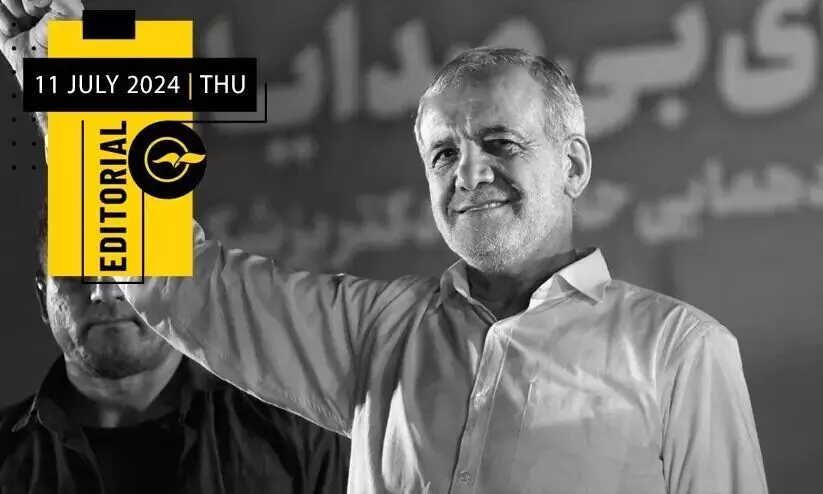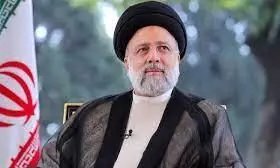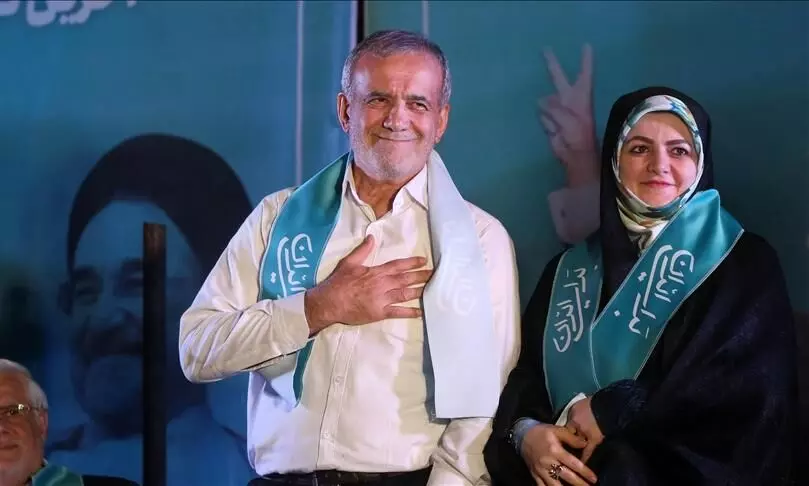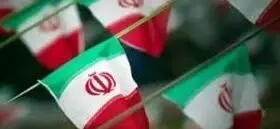
Challenges before Iran's new president
text_fieldsMasoud Pezeshkian was elected as the President of the Islamic Republic of Iran with 53.3 per cent of the vote. In the first round of polling held on June 28, , Pezeshkian had secured 42.5 per cent and main rival Saeed Jalili 38.8 per cent in an election that saw lowest turnout in Iran's history of 40 per cent. In the run-off election, held for want of an absolute majority for none of the candidates, Pezeshkian, a 69-year-old cardiologist, won 53.3 per cent of the vote and former member of the National Security Council, Saeed Jalili 44.3 per cent, thus making Pezeshkian the ninth president of Iran.
By defeating Jalili, generally termed a 'conservative', who is believed to be close to Iran's Supreme Leader Ali Khamenei, the election result may have been a mild retort to the criticism of Iran's democratic model that everything is at the will of the supreme leader. Elections were supposed to be held only in 2025 for the four-year term of the Iranian president. However, interim elections became necessary after President Ebrahim Raisi died in a helicopter crash in May. A religious jurist and strong extremist, Raisi had also been widely considered to be Khamenei's successor due to his erudition and closeness to Ali Khamenei. The helicopter crash changed all that. In that context, at least some observers think that it is significant that Masoud Pezeshkian, who has a reformist stance different from Raisi's, was elected.
Those 'progressive' positions include Iran's divergent approaches to domestic and foreign affairs. But there are similarities between the two candidates which defy the black-and-white analysis of most quarters of observers. The most important of these areas are the diplomatic relations with the United States, the commitment to Iran's nuclear program, the position towards the Zionist state of Israel, and the solidarity with the anti-Zionist resistance entities such as Hamas and Hezbollah. Moreover, Pezeshkian's antecedents show that he too shared radical Iranian revolutionary fervour of the post-revolution era after 1979. . Biographers recall Pezeshkian's participation both as a fighter and doctor on the Iranian side in the war imposed on Iran by Iraq after the 1979 revolution led by Ayatollah Khomeini. Pezeshkian was not a member of the ministry in 2005 when Ahmadinejad, known as a hardliner, came to power.
Later, he became a member of the Parliament and in 2009, he expressed disagreement with the way the protestors who had held demonstrations against the government were handled. Another thing to note: After Hassan Rouhani was elected president in 2014 and won another term, Pezeshkian had registered himself to run in the 2021 elections. But the Supreme Leader removed his name. What happened now is noteworthy about Iran's democracy: though rejected earlier, his candidacy was accepted in the current election after the death of Ebrahim Raisi, who won last time. Pezeshkian, a 'reformist' who was unacceptable to the Supreme Leader then, is acceptable today. It is not because of any change in fundamental positions. In most democracies, candidates are disqualified for varying reasons, but in Iran it is the 'spiritual leadership' that keeps some out of the field for certain other reasons. But they get cleared at other times, as proven now.
Pezeshkian is assuming office power at a time when Iran is facing challenges both internally and externally. A challenge is maintaining relations with Hamas and Hezbollah, which are responding militarily to Israeli atrocities in Palestine, a stand not relished by many counties in the West and elsewhere. Moreover, Israel's covert and overt attacks against them call for military vigilance.
Secondly, in 2018, the Trump administration unilaterally cancelled the nuclear agreement signed with the United States under the aegis of the UN in 2015. Along with that, due to the economic recession created due to the sanctions against Iran, people's lives have become very difficult. Most people believe that if Pezeshkian, now a moderate, is able to restart the nuclear talks and thereby reach a new deal, it will be beneficial for the country. However, Pezeshkian indicated that he will not make any compromises in regard to stand on Israel and that he will continue to support the Palestinian fighting forces, as stated in a message sent to Hezbollah leader Hassan Nasrallah last Monday.
He is thus sufficiently 'qualified' to be unpopular with the United States. Apart from this, the president alone cannot make a decision on such critical issues according to the Iranian system of governance. Only decisions taken at the level of the supreme leader will stand on key issues of policy implications. In order to improve the relations between Iran and the outside world at that level, the countries on the other side also need to adopt an approach that gives allowance for the existence and rights of Iran as a nation.


























